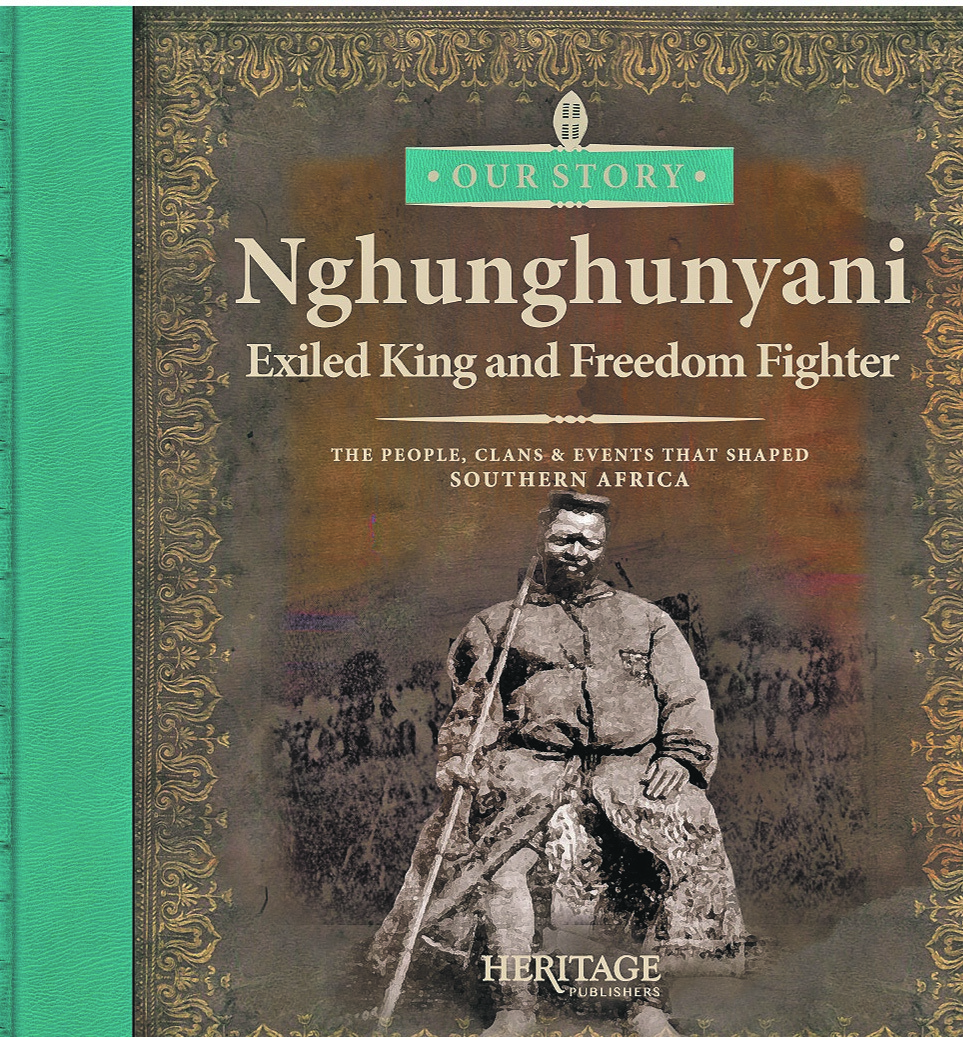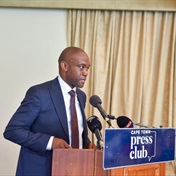
Nghunghunyani: Exiled King and Freedom Fighter
South African Heritage Publishers
48 pages
R100 at bookstores
...
When Nghunghunyani returned to Bileni, the Copi started to reinforce and strengthen their underground fortifications in case of an attack by the returning Nguni and Machangana forces.
Their more powerful neighbours had, throughout the ages, subjected the Vacopi or Valenge to attacks and capture.
Their young girls and maidens were abducted to become slaves and foster wives, known as vahundzi, to the soldiers and senior Nguni councillors.
Their born-free children were known as vatshama-ndyangu (sojourners).
Young Vacopi men were the most sought-after captives to be sold to the Boers and Portuguese settlers as they were believed to be compliant and docile. They were bought as inboekelings or apprentices.
Nghunghunyani launched two unsuccessful attacks on the Vacopi. It was only after a young soldier, Magigwani Khosa, discovered the secret of their underground bunkers that the Vacopi were finally defeated.
To force them to surrender, in 1892, Nghunghunyani invited their king, Makupulani, to his capital, Mandlhakazi. Makupulani had been told that he was there for peace talks.
However, once Nghunghunyani successfully lured him to his capital, he had him treacherously killed. Nghunghunyani had the king’s heart and spinal bones removed, burnt and ground down into a potion. He mixed it with soldiers’ urine.
He then gave the potion to his soldiers to drink so that they could inherit Makupulani’s courage and valour.
This act broke down the resistance of the Vacopi who believed that their power was now transferred to Nghunghunyani’s soldiers.
Nghunghunyani realised that his kingdom was at the crossroads of a new political dispensation. He knew that the Portuguese were dangerous for his political survival.
He also realised that the political forces in the area would have to be completely realigned. He then seriously considered collaborating with the British.
He sent emissaries to the British in Natal and, as a gesture of goodwill, he sent two elephant tusks to the governor of Pietermaritzburg.
However, the ivory was so heavy that the delegation had to leave one tusk behind along the way.
Except for the usual compliments to the king, the British government, which was a signatory to the Berlin Protocol, regarded the Gaza-Nguni Empire as an area under Portuguese control.
Nghunghunyani’s approaches to the British meant a major shift in the direction of his political life.
He was simply trying to save a system in which he could get some kind of guarantee that he would still have political domination in the area.
He was trying desperately to prevent his kingdom from being totally destroyed. To the Gaza-Nguni rulers, this was a new situation.
They had never had to deal with anything like this in their relatively short history.
Nghunghunyani did not realise that his strategy of approaching the British would be disastrous for him.
The tentacles of colonialism were gradually and systematically wrapping themselves around the whole of southern Africa.
Nghunghunyani was not aware that all the European nations had similar designs on the future of the whole African continent. He was not aware that the British were also opposed to any form of African rule in Africa.
Hence, in 1891, he even tried to get British protection. Nghunghunyani knew that the Gaza kingdom would also be exposed to the flow of European colonialism.
The white colonialists saw Nghunghunyani as a sort of African savage waiting to pounce on the timid Europeans, whose task it was to civilise them.
Ha-ha-ha ... you are all looking at me with big eyes, round as saucers. But this is the truth.
I am telling it to you just as my grandfather told me. This is what the Europeans thought of our great king ... some kind of savage. Oh my goodness!
But come, let us warm ourselves by the fire. I feel a cool breeze stirring through my bones.
The Portuguese administration settled itself in Bileni.
In 1885, the administration sent an embassy to Mandlhakazi. This was led by the Portuguese secretary for the province of Mozambique, JC Alegria Rodriques.
The purpose of the embassy was to establish a Portuguese presence at the capital by appointing a resident and raising a Portuguese flag.
This was to be a first step towards effective occupation, as decided by the colonial powers at the Berlin Conference.
Nghunghunyani was expected to allow prospectors to speculate for minerals in his territories. A delegation was sent to Lisbon, where an agreement was signed that allowed Portugal to fly its flag at Mandlhakazi.
The flag was meant to symbolise good neighbourliness with the independent Gaza state. It also confirmed an agreement that no Portuguese troops would enter Gaza territories without the king’s approval.
This all sounds very friendly and peaceful, don’t you agree? Can Nghunghunyani trust the Portuguese to keep their side of the bargain? What do you think?
. To buy the book, ask your nearest bookseller to order a copy if they do not stock the series, or contact the publishers at info@saheritagepublishers.co.za
. For a full list of titles in the series, visit saheritagepublishers.co.za
. For updates and more information, follow Our Story on Facebook at facebook.com/ancestorstories or on Twitter at @saheritagepub
WIN!
To win an exclusive box set of the first 14 Our Story titles, valued at R2 500, SMS us on 34217 using the keyword HERITAGE12.
Include your name, surname, email address and the answer to the following question: In what year did the Portuguese send a delegation to Mandlhakazi as a first step towards effective occupation?
Congratulations to last week’s winner, Kenosi Sereo from Kagiso. ANSWER: The Portuguese




 Publications
Publications
 Partners
Partners






















